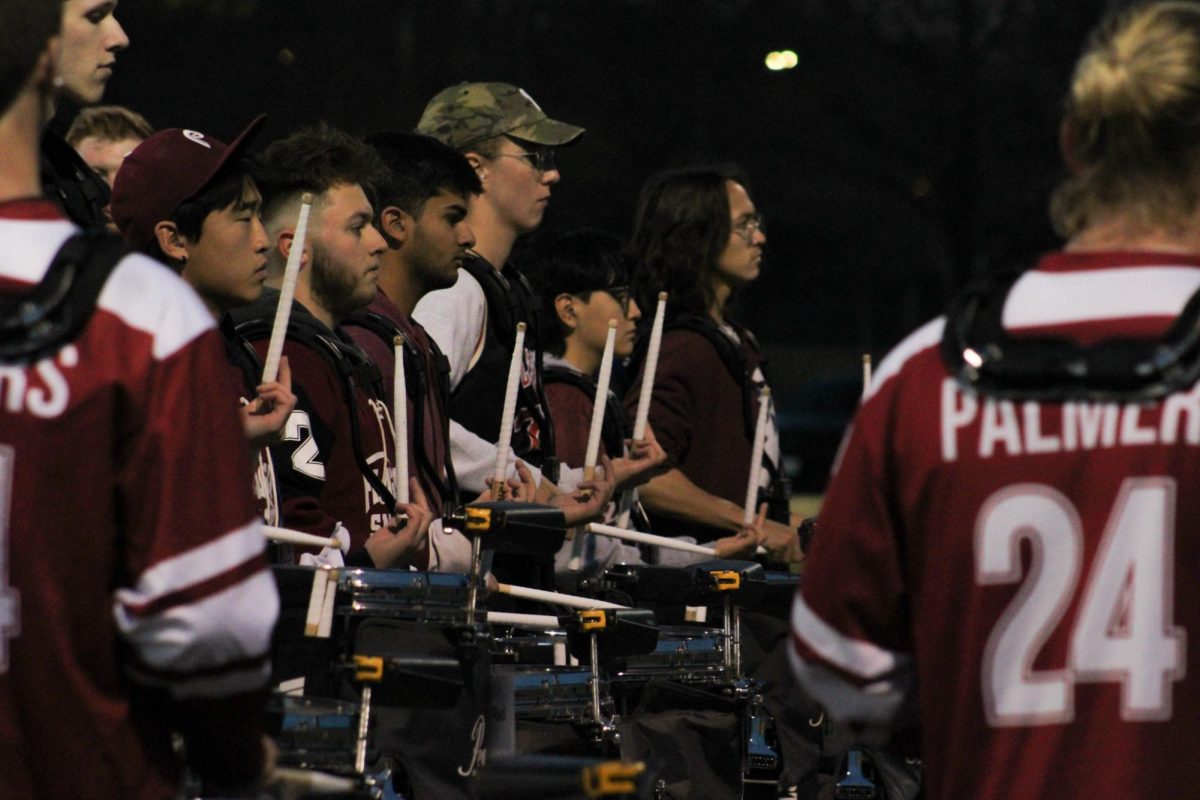
Before the majority of Video Music Award acts were hip-hop stars and the President cited the Fugees as one of his favorite music groups, rap music was weird. In the early ’90s, while gaining popularity, rap music still sat on the fringe of mainstream music.
The popular rap acts weren’t neatly polished label darlings crooning like pop stars and flying private planes to Vienna in business suits. Rap acts were groups of teenagers from New York housing projects. They named themselves after their favorite Kung Fu movies and spit out guttural utterances over sinister beats that were reminiscent of Staten Island club bangers and funeral home mood music.
In the 1990’s Golden Age of Rap, language wasn’t a static lexicon of overused terms and clichéd phrases. In the ’90s the language of rap was fluid and ever-changing. Rappers like Big L and Method Man introduced scores of new words into an ever-evolving pool of expressions. Some words they’d read in books, some they’d heard on TV, and others they simply made up.
As rap entered the new millennium, it did so having found mainstream acceptance. Rappers won Grammys, rap songs won Oscars, rappers starred in family films and hip-hop ceased to be a popular alternative to the commercial mainstream; hip-hop was the mainstream. Having landed on this new-found cloud of popularity and mainstream acceptance it is of little surprise that rap music lost that initial strain of eccentricity that had been dominant through much of the genre’s formative years. And while an active movement of underground rappers producing alternative rap music continued to exist, their followers stem from the outer rungs of the hip hop world – the backpackers and rap aficionados.
Then came Lil’ Wayne’s “Tha Carter III.” At the time of the album’s release in 2008, Lil’ Wayne was already a hip-hop veteran having started out rapping in 1997 as a member of the Hot Boys. Yet, while Lil’ Wayne hadn’t quite been a household name up until then, after the release and subsequent success of “Tha Carter III,” the name Lil’ Wayne rested on the tip of everybody’s tongue, from Brooklyn hip-hop head, to Iowa MFA student. Everyone found something in Lil’ Wayne’s oddness to love and call their own. And make no mistake – “Tha Carter III” was odd.
On the album Wayne’s voice was at once syrupy, street-bred hustler and Steven Spielberg Extra Terrestrial. The beats varied from sensually auto-tuned club bangers to manically sampled hip-hop minimalism. “Tha Carter III” was entirely new in its sonic concept, yet still very much in keeping with the almost sacred canon of rap music. The album cover’s picture of a young Lil’ Wayne was in keeping with a deeply rooted tradition of hip-hop greats putting photographs of their younger selves on their album covers, from Nas’s “Illmatic” to B.I.G.’s “Ready to Die.” It was Wayne’s way of letting us know that we are to regard his album as a classic. And so we do.
Nearly three years later and Lil’ Wayne has released “Tha Carter IV.” By positioning this album as the fourth installment in “Tha Carter” series, Wayne has invited the inevitable “Tha Carter III” comparisons. And while “The Carter IV” is perhaps not as groundbreaking as it predecessor, it is still excellent, and should be regarded as an important addition not just to Lil’ Wayne’s increasingly diverse repertoire, but also to the hip-hop world as a whole.
“Tha Carter IV” is brilliant in its weirdness and Lil’ Wayne should be applauded for his artistic audacity. At a point in hip-hop where your average run of the mill radio rap song is essentially a sing-song chorus interspersed with some pedestrian attempts at rapping, Lil’ Wayne has released an album whose songs rarely contain any hooks at all. Songs like “MegaMan” and “6 Foot 7 Foot” feature Lil’ Wayne displaying rapid-fire wordplay, void of even an attempt at a discernable hook. Furthermore, at a point in time where even rappers like Eminem are kowtowing to the glossy pop of stars like Rihanna or Bruno Mars in order to have them featured prominently on their songs, “Tha Carter IV” features a who’s who of veteran lyricists who haven’t basked in the spotlight of industry super-fame. Rappers like Andre 3000, Bun B, and Shyne rap on songs that Wayne isn’t even featured in, whereas Bruno Mars’s appearance is shelved as a bonus track on certain deluxe editions of the album.
The beats on “Tha Carter IV” are darker than they were on “III.” Songs like “President Carter,” which cleverly sports a sample from former president Jimmy Carter, feature Wayne in his darkest moments, the drum loop hobbling along over a twisted piano sample reminiscent of early RZA beats. Yet for all subterranean darkness that persists throughout the album, there are songs like “Nightmare at the Bottom,” which, despite the title, is actually quite upbeat.
With “Tha Carter IV,” Lil’ Wayne has once again succeeded in making the utterly bizarre accessible. The album twists and turns into uncharted lyrical planes, and all along the way Wayne bends and coils the timbre of his voice to turn out a sound that is wholly his own. It’s as if he speaks a language entirely of his own devising – a language at once completely incomprehensible, yet oddly familiar. “Tha Carter IV” may be the strangest album to have had a major label release this year, but it is for that reason that it is brilliant, and it is for that reason that lovers of hip-hop can surely place Lil’ Wayne in the pantheon of the genre’s greats.
Isaac Himmelmann can be reached at [email protected].













Eric Tori • Oct 7, 2011 at 9:50 am
Nothing was as good as tha carter 3. I actually thought this album was pretty weak.
Snowbot • Sep 28, 2011 at 4:44 pm
i liked tha carter 3 better but i agree that this album is still very good and up to par with some of the best work in the game right now so i agree with this article.
Ryan • Sep 28, 2011 at 4:07 pm
‘Lil’ Wayne should be applauded for his artistic audacity’
– I’m laughing at this extract. You’re calling Lil Wayne artistic? You need to visit an art museum my friend.
Ryan • Sep 28, 2011 at 4:05 pm
What is wrong with you? Lil Wayne is killing hip-hop, this album is no contrast. You have NO idea of what you’re talking about, Lil Wayne is generic garbage, this album is generic garbage, OPEN YOUR EARS
peter • Sep 21, 2011 at 3:11 pm
Yeah, this guy’s dead on. What a great writer!
Shlomo Aron • Sep 20, 2011 at 9:26 pm
One moe thing. Uber good article!
Shlomo Aron • Sep 20, 2011 at 9:25 pm
Lil’ Wayne is uber good!!
Steve Bo Strawden HalfNickel • Sep 20, 2011 at 9:19 pm
i wish lil wayne had an extra arm!
Elvis Ondieki • Sep 20, 2011 at 2:55 am
What a sober critique! The article kept me glued from start to finish; perhaps because I’m Lil’ Wayne’s die-hard fan. But I agree with you on everything. Great stuff.
Kyky • Sep 20, 2011 at 1:35 am
On this album has collaborations with pop artists echo but echo Mr. Wayne featuring with artists who are not their kind of music like Shakira, Usher, Beyonce, Enrique Iglesias and Jennifer Lopez as far as I know, do not sing rap.
This album is a classic?
Kenan Kobe • Sep 19, 2011 at 10:34 pm
Finally someone who knows what they are talking about. This album is just vintage.